Best Pitcher Water Filters
Written by:
John Goss
10/05/2023
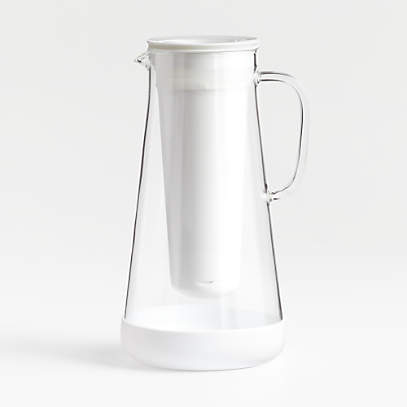
Updated: 04/12/2024
Looking for a different guide? Browse them all HERE.
When comparing pitcher-type water filters, you’ll noticed that most brands’ main claim is that their pitcher will make your water taste and smell better. While of course we want our water to taste fresh, this post is about the best pitcher water filters from a health perspective.
When it comes to the most robust water filtration, we always recommend “real” water filter systems (which are hooked up under the sink) over pitcher filters or countertop gravity filters. That said, if you’re in the market for a pitcher-style water filter, this guide will review 6 brands and reveal our favorites (including one that’s glass, not plastic!).
How Does a Pitcher-Style Water Filter Work?
Almost all pitcher/gravity filters use carbon-block filtration, which is a good start. Carbon is used in almost every type of filtration (be it for water or air), but there are different types of carbon filters. Some last longer than others, and some filter out a wider range of contaminants–fortunately, some do both really well!
And carbon filters represent only one type of effective filtration. There are other technologies worth applying as well. You’ll learn more about these below in our reviews.
Does TDS Matter in Pitcher Water Filters ?
If you’ve done any research into pitcher water filters, you’ve likely seen the termTotal Dissolved Solids (TDS). Many manufacturers use TDS reduction numbers to convince consumers that their filters remove a wide range of toxins. This is sneaky. TDS is not an adequate measure of water toxicity.
TDS meters do not detect many contaminants and toxins that can be found in water. A TDS meter can show a very low number on water that nevertheless contain toxins like arsenic, lead, chromium-6, and more. It takes more sophisticated equipment to properly test for those substances. The opposite is also true–your water can have poor TDS results and still be perfectly safe to drink.
From our perspective, using TDS results as a marketing tool is misleading. What you need to look at in your search for the best pitcher filter are the results of tests that look for the widest range of potential toxins. If you want to test your current water at home, you can do so with this kit.
How Do You Determine the Best Pitcher Water Filter?
Many sites that review pitcher filters use considerations like, handle comfort, flip-top or not, and “sexy design.” We considered these elements for this review, but our number one concern was how well these pitcher filter your water.
The main criteria we use to evaluate these filters are:
- How many different toxins they remove.
- Whether or not they conduct and publish their test results and certifications. Specifically, we looked for pitchers that meet NSF Standards 42 and 53, which ensure that these filters can reduce specific contaminants, such as chlorine, lead, and VOCs.
- How often you need to replace the filters within the pitcher. Most filters pitchers should be replaced about every three months, and we will note below the brands that are longer or shorter than this average.
We also considered cost, durability, the materials the unit is made of, capacity, and even corporate structure and responsibility when deciding which filters would make our Best Stuff list.
Best Stuff
Aquagear
Cost: $69.95
Replacement Filter Cost: $49.95
Use code GIMMETHEGOODSTUFF for 10% off first order when you purchase directly from Aquagear.
Pros:
- Publishes their independent lab results which show significant reductions in a wide swath of contaminants, including PFAS.
- Internal filters need to be replaced about every 4-6 months, which is longer than many filters.
- The Aquagear Foundation donates biosand filters to Tansanian communities. For every filter they sell, one Tansanian gets about 6 months of clean water, thus helping to cut mortality rates due to water-bourn diseases.
Cons:
- Somewhat bulkier than other pitcher designs.
- Plastic carafe.
LARQ Pitcher PureVis
Cost: $139.
Replacement Filter Cost: $46
Pros:
- Uses NSF 43/52-certified filtration.
- Includes a rechargeable battery-powered “wand” that produces UV-C light, which kills bacteria that can grow in any water container.
- Donates to 1% for the Planet, the non-profit started by the founder of Patagonia.
Cons:
- Comes with an app, which we feel is a bit gimmicky.
- A higher upfront cost compared to other pitcher filters.
- Plastic carafe.
LifeStraw Home 7-Cup in Glass
Cost: $68.95
Replacement Filter Cost: $16
Pros:
- Only filter to come in a glass carafe, rather than plastic.
- Testing and transparency is unparalleled. They use the most trusted performance criteria, based on protocols established by the World Health Organization, the US EPA, NSF International, and the Water Quality Association.
- Climate Neutral Certified, B-Corp status.
- Give Back program ensures that for every product sold, a child in need receives safe water for an entire year. (Has provided over 6 million kids with a year of safe water.)
Cons:
- One of the two filters needs to be replaced more often than other brands (every other month).
Note: Other Lifestraw models are essentially the same as this one, but the carafe is BPA-free plastic.
Good Stuff
Epicwater Nano System
Cost: $69
Replacement Filter Cost: $46
Pros:
- NSF 42 & 53 certifications.
- Filters last longer than some, up to 6 months.
- Epicwater supports the Inland Ocean Coalition.
Cons:
- The pitcher may be considered bulkier and take up more space in the refrigerator compared to more streamlined pitcher designs.
- Plastic carafe.
Zero Water 12-Cup Ready Pour 5 Stage
Cost: $40
Replacement Filter Cost: $17.34
Pros:
- NSF 42 & 53 certification.
- Most affordable pitcher-style filter.
- Zero Water is a Culligan brand, which has a social/environmental mission.
Cons:
- Filters need to be replaced every two months, which is much more frequent than other filters.
- Plastic carafe.
- Uses a multi-stage filtration process, which can be more involved compared to simpler pitcher designs.
As we found out here, pitcher filters can effectively filter small quantities of water. While we feel that in the long run it may be a better investment to install a quality under-counter system, but the above pitcher filters will do a pretty good job.
I don’t personally use a pitcher filter (I have Gimme Clean Water under my sink), but Maia has an AquaGear because her kids love very cold water when they play sports.
If you want help choosing an under-counter or whole house filter, you can give me a call at 717-869-6968. I am happy to share what I know! (This post may also be helpful.)
Stay sane,


John, Certified Holistic Health Coach
Note: This article contains affiliate links or sponsored content, which means that if you make a purchase, we may earn a commission. We only recommend products that meet our strict standards for non-toxicity and that we use (or want to use!) ourselves. Thank you so much for supporting the brands that make Good Stuff!

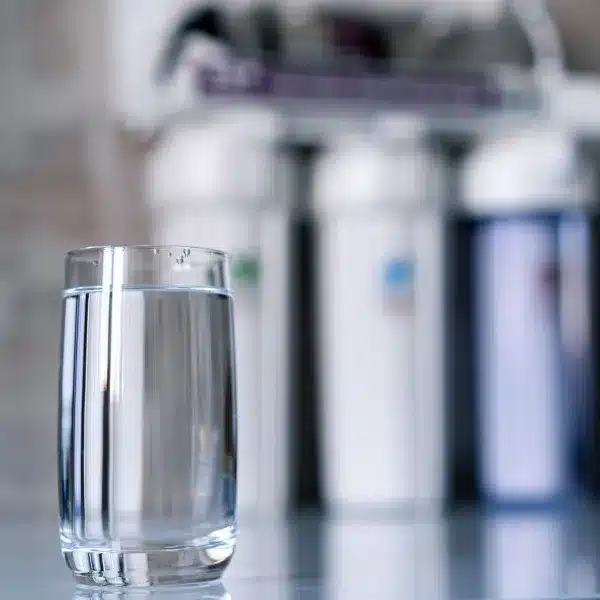
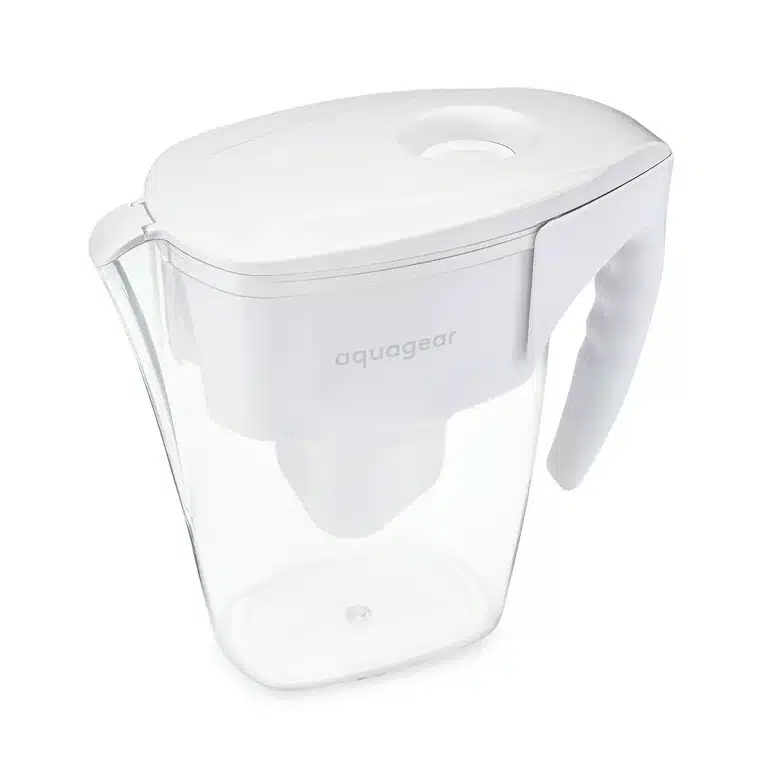
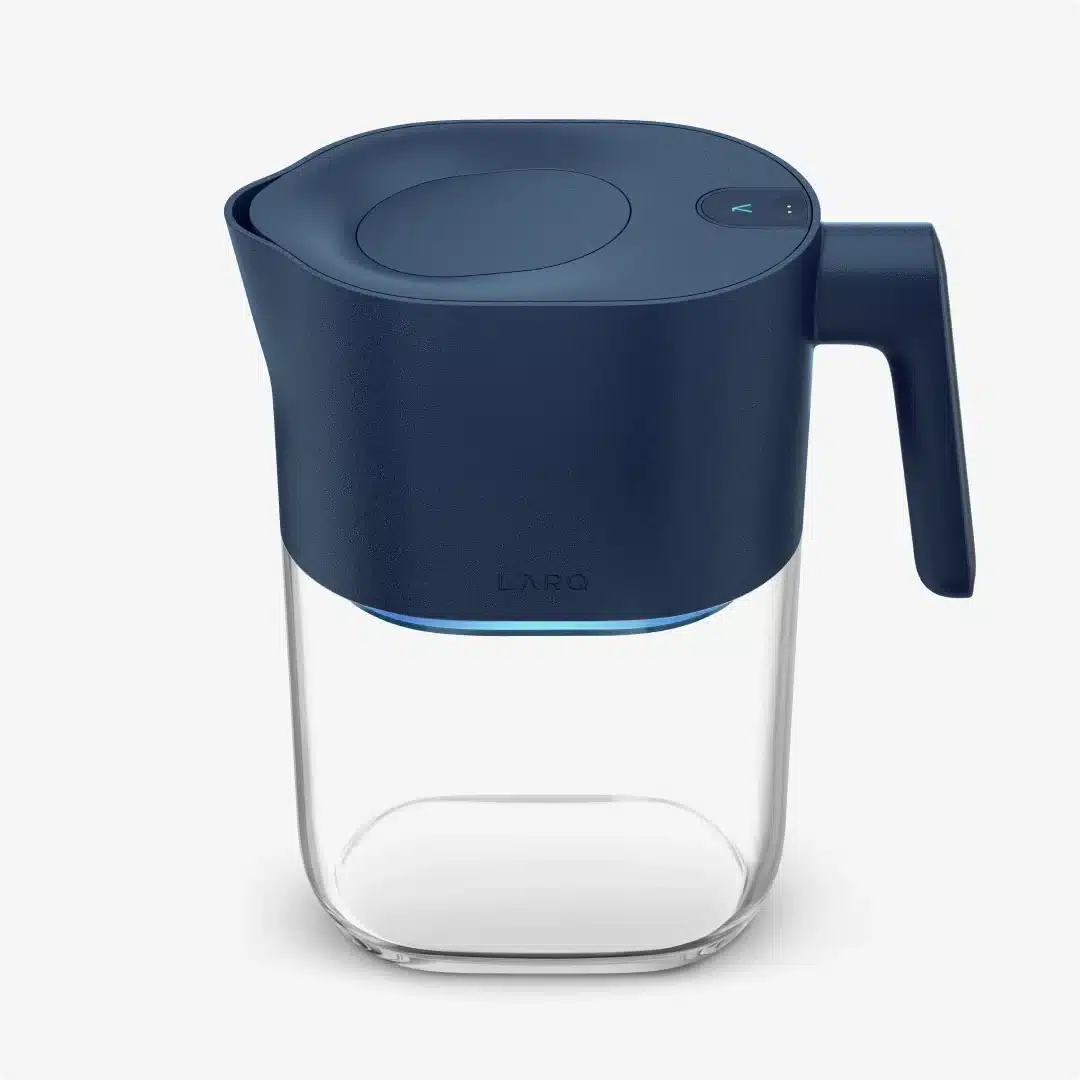
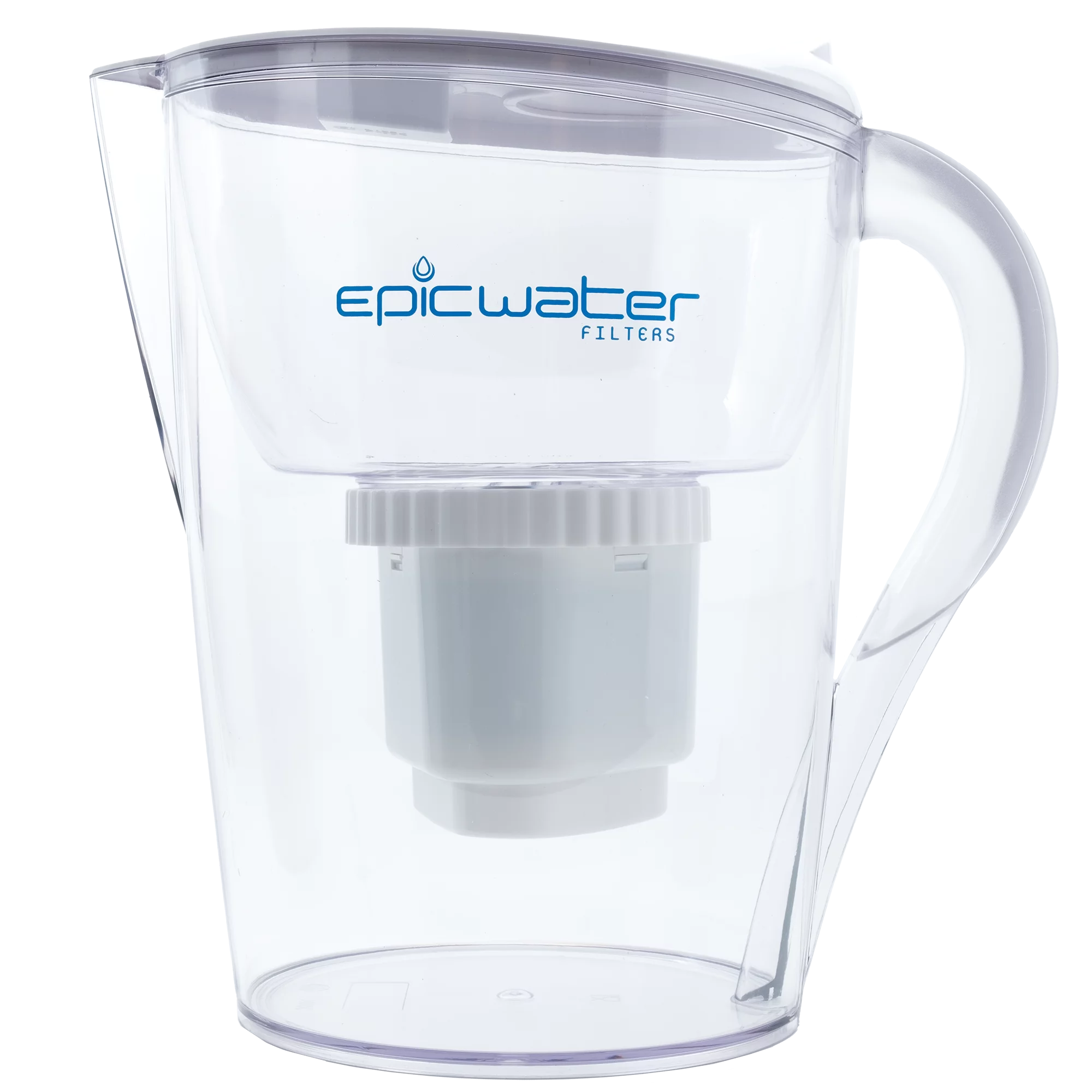
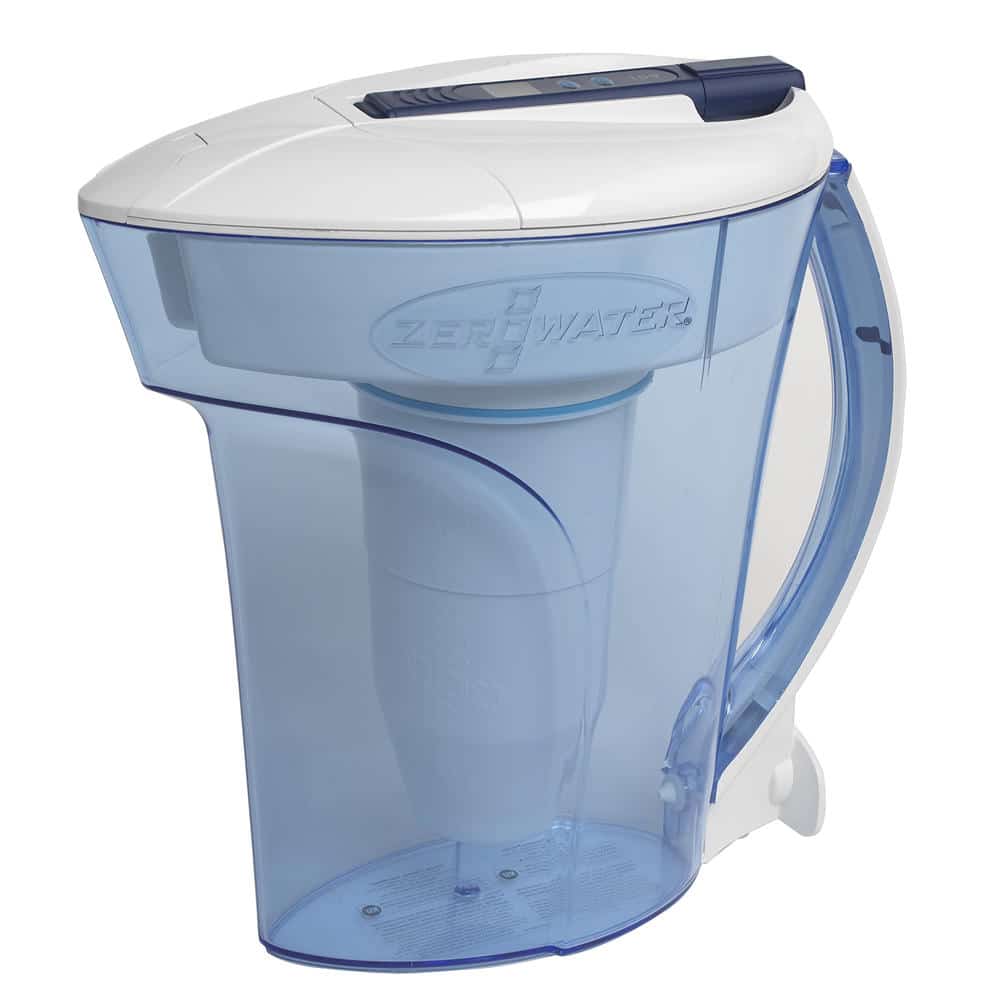

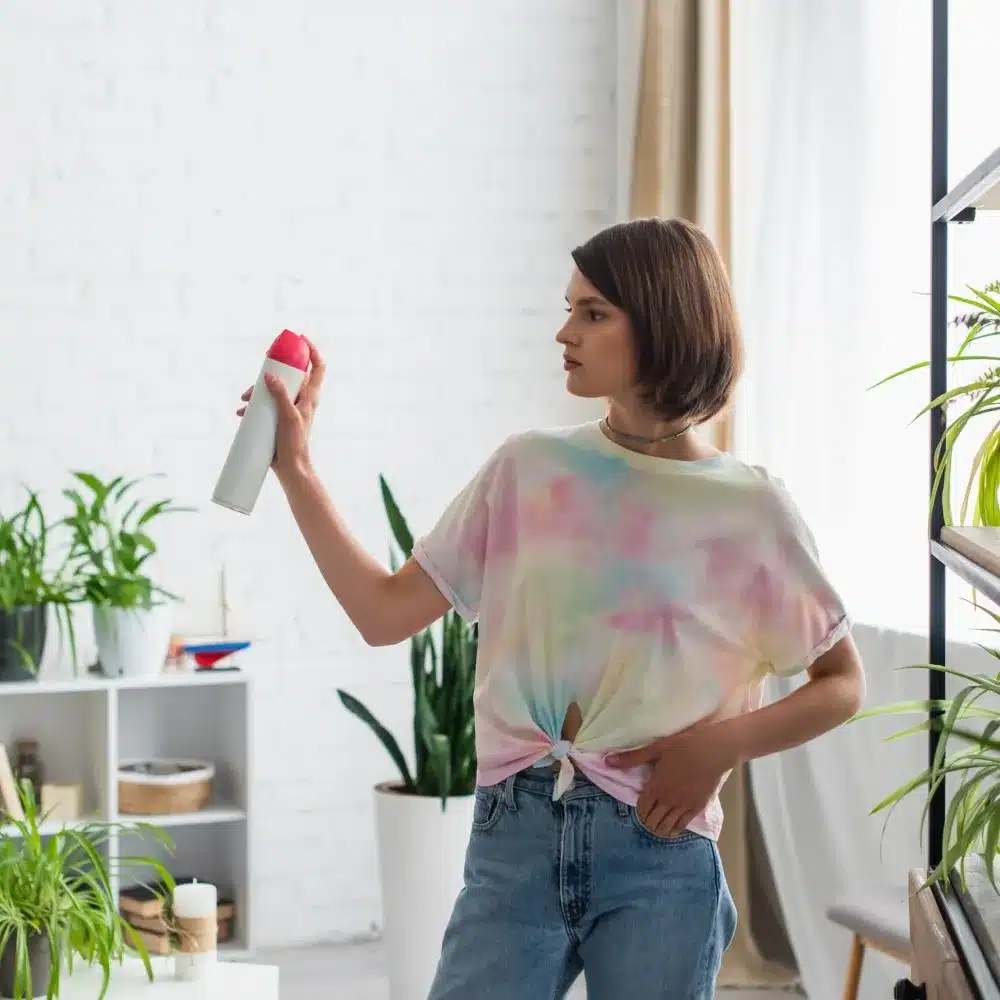


Leave a Reply
You must be logged in to post a comment.